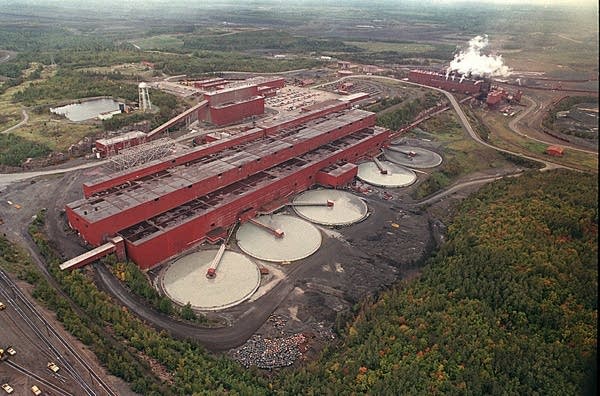Environmental groups launch second legal challenge over PolyMet land exchange

Go Deeper.
Create an account or log in to save stories.
Like this?
Thanks for liking this story! We have added it to a list of your favorite stories.
The Minnesota-based environmental group WaterLegacy sued the U.S. Forest Service in federal district court Monday, arguing the agency gave a "sweetheart deal" to PolyMet in the land exchange it approved earlier this month for the proposed copper-nickel mine.
That land swap is a critical step for PolyMet in its bid to open the state's first copper-nickel mine. The company controls the mineral rights under the land where it hopes to mine. But the Forest Service had said the company needed to also own the land in order to dig an open-pit mine.
But in appraising the federal land to be traded to PolyMet, the agency "turned a blind eye to the real purpose of the land exchange, which is for the PolyMet mine," argues Paula Maccabee, WaterLegacy's advocacy director and attorney.
"They ignored the minerals on the property. They ignored the actual market in Minnesota where mining companies pay premium prices to get ahold of private lands," Maccabee said. "Instead they valued the land purely and solely for timber investment purposes."
Turn Up Your Support
MPR News helps you turn down the noise and build shared understanding. Turn up your support for this public resource and keep trusted journalism accessible to all.
The land exchange calls for the Forest Service to trade 6,650 acres of federal land to PolyMet near Babbitt and Hoyt Lakes, Minn., where the company intends to build the mine, for 6,690 acres of private land.
The Forest Service valued its land at $550 per acre. According to Maccabee, the agency failed to consider sales of private land in northeast Minnesota to mining companies that averaged $1,645 an acre.
Furthermore, she said land recently sold to the Kennecott Exploration Company in Aitkin County averaged $3,885 per acre. In a statement, PolyMet said it has "confidence in the Forest Service appraisals, which followed well-established federal guidelines by the Department of Justice. After years of review and analysis, the Forest Service has determined the land exchange is in the best public interest."
The lawsuit follows the announcement of another suit against the Forest Service earlier this month. The Center for Biological Diversity and Earthworks filed an intent to sue one day after the agency approved the land exchange, arguing it threatened habitat for endangered lynx and wolves.
PolyMet still needs more than 20 state and federal permits before it could begin construction of the mine, which is projected to operate for 20 years and create more than 300 jobs.
It filed its major Permit to Mine application with the Minnesota Department of Natural Resources last November, after a more than 10-year environmental review process.
The company expects regulators to begin issuing draft permits around the middle of this year. If PolyMet eventually secures final permits, construction of the mine is expected to last about two years.




